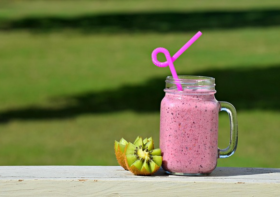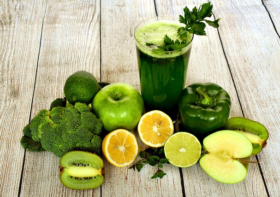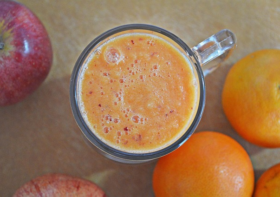The Role Of Nutrition In Skin Health: Foods For A Radiant Complexion

Picture this: you wake up in the morning, look in the mirror, and notice a radiant glow on your skin that seems almost otherworldly. Your complexion is clear, smooth, and positively luminous. What if I told you that achieving this radiant skin doesn’t require expensive treatments or fancy skincare products? The secret lies in something that is easily accessible to all of us: nutrition. Yes, the food you eat plays a crucial role in the health and appearance of your skin. In this article, we will explore the fascinating connection between nutrition and skin health, and uncover the foods that can help you achieve that enviable radiant complexion you’ve always dreamed of.
The Impact of Nutrition on Skin Health
Your skin is the largest organ in your body, and maintaining its health is essential for both your appearance and overall well-being. While skincare products and treatments can certainly improve the condition of your skin, the foundation for a radiant complexion lies in your diet. The food you consume directly impacts the health of your skin, and by incorporating key nutrients into your meals, you can enhance its vitality and delay the signs of aging. In this article, we will explore the impact of nutrition on skin health, discuss the importance of hydration, the role of gut health in skin radiance, and the effects of certain foods and substances on your skin.
Key nutrients for healthy skin
When it comes to nourishing your skin, certain nutrients play a crucial role. These include antioxidants, omega-3 fatty acids, proteins, vitamins, and minerals. Antioxidants help fight free radicals, which are unstable molecules that can damage your skin cells and lead to premature aging. Omega-3 fatty acids are essential for maintaining the health and integrity of your skin barrier. Proteins, such as collagen, are the building blocks of your skin and help maintain its elasticity. Vitamins and minerals, on the other hand, are essential for various skin functions, including cell repair and regeneration. By incorporating foods rich in these key nutrients into your diet, you can support and improve the health of your skin.
Effect of diet on skin aging
The aging process is inevitable, but certain dietary choices can either accelerate or slow down the appearance of aging signs on your skin. Diets high in sugar and processed foods have been linked to accelerated skin aging. This is because excessive sugar consumption can lead to a process called glycation, where sugar molecules bind to proteins in your skin, causing stiffness and wrinkles. Additionally, processed foods are often lacking in essential nutrients and high in trans fats, which can contribute to inflammation and oxidative stress, both of which accelerate the aging process. On the other hand, adopting a balanced diet rich in fruits, vegetables, lean proteins, and healthy fats can support healthy aging and help you maintain a youthful complexion for longer.
The relationship between nutrition and common skin conditions
Nutrition not only plays a role in maintaining overall skin health but also has an impact on various skin conditions. For example, studies have shown a link between acne and diets high in refined carbohydrates and dairy products. These foods can increase blood sugar levels and trigger hormonal imbalances, both of which can contribute to acne breakouts. Eczema, another common skin condition, has also been linked to dietary factors such as food allergies and sensitivities. By identifying and avoiding trigger foods and incorporating skin-supportive nutrients into your diet, you can potentially improve the symptoms of these common skin conditions.
Foods That Promote a Radiant Complexion
Antioxidant-rich fruits and vegetables
One of the most effective ways to improve the health and appearance of your skin is by consuming a variety of antioxidant-rich fruits and vegetables. Fruits such as berries, oranges, and kiwi are packed with vitamin C, which is a powerful antioxidant that helps protect your skin from free radicals and supports collagen production. Leafy green vegetables like spinach and kale are excellent sources of vitamins A and E, both of which have antioxidant properties and help promote skin health. By incorporating these colorful and nutrient-dense foods into your meals, you can nourish your skin from the inside out and achieve a radiant complexion.
Omega-3 fatty acids for skin health
Omega-3 fatty acids are essential for maintaining the health and integrity of your skin barrier. They help retain moisture, reduce inflammation, and promote a soft and supple complexion. Fatty fish, such as salmon, mackerel, and sardines, are excellent sources of omega-3 fatty acids. Plant-based sources include flaxseeds, chia seeds, and walnuts. By incorporating these foods into your diet, you can support the health and appearance of your skin.
Protein sources for collagen production
Collagen is a protein that provides structure and elasticity to your skin. As you age, collagen production naturally declines, leading to wrinkles and sagging skin. Consuming adequate amounts of protein is essential for collagen synthesis and maintenance. Lean meats, poultry, fish, and dairy products are all excellent sources of high-quality protein. For vegetarian or vegan options, legumes, nuts, and seeds are good sources of plant-based protein. By including these protein sources in your diet, you can promote collagen production and maintain a firm and youthful complexion.
Vitamins and minerals for skin vitality
Vitamins and minerals play a crucial role in maintaining the vitality of your skin. Vitamin A, for example, helps boost cell turnover and promotes a smooth and even skin tone. It can be found in foods such as sweet potatoes, carrots, and leafy green vegetables. Vitamin E is an antioxidant that protects your skin from sun damage and can be found in foods like avocados, nuts, and seeds. Zinc is another essential nutrient for skin health, as it helps control inflammation and supports wound healing. Foods rich in zinc include oysters, lean meats, and pumpkin seeds. By incorporating these vitamins and minerals into your diet, you can nourish your skin and maintain its vitality.

Hydration and Its Effect on Skin
The importance of hydration for skin health
Hydration is key to maintaining the health and appearance of your skin. Water makes up a significant portion of your skin cells, and inadequate hydration can lead to dryness, flakiness, and a dull complexion. Proper hydration helps keep your skin plump, smooth, and supple, reducing the appearance of fine lines and wrinkles. Additionally, water helps flush out toxins from your body, promoting a clear and radiant complexion. It is essential to prioritize hydration as part of your daily skincare routine.
Recommended daily water intake
The recommended daily water intake varies depending on factors such as age, sex, activity level, and climate. In general, it is recommended to drink at least 8 cups (64 ounces) of water per day. However, individual water needs may differ, so it is essential to listen to your body’s signals of thirst and adjust your intake accordingly. Additionally, certain factors such as exercise, hot weather, and alcohol consumption may increase your water requirements. By consistently meeting your daily water intake goals, you can help keep your skin hydrated and promote a healthy complexion.
Other hydrating foods and beverages
In addition to drinking water, certain foods and beverages can contribute to your hydration levels and support the health of your skin. Fruits and vegetables with high water content, such as cucumbers, watermelon, and celery, can help hydrate your body from within. Herbal teas and infused water are also excellent choices for hydration, as they add flavor and provide additional health benefits. Avoiding excessive consumption of dehydrating beverages such as alcohol and caffeinated drinks is crucial for maintaining optimal hydration levels in your skin. By incorporating these hydrating foods and beverages into your routine, you can further support your skin’s hydration and achieve a radiant complexion.
The Role of Gut Health in Skin Radiance
The gut-skin connection
While it may seem surprising, there is a strong connection between the health of your gut and the condition of your skin. The gut and the skin are both organs of elimination, and any imbalances or disruptions in the gut can manifest as skin issues. Your gut microbiome, which is the community of bacteria in your digestive tract, plays a crucial role in supporting your immune system and maintaining the health of your skin. When the balance of good and bad bacteria in your gut is disrupted, it can lead to inflammation and various skin conditions such as acne, rosacea, and eczema. By prioritizing gut health, you can promote skin radiance from the inside out.
Fiber-rich foods for gut health
Fiber is a nutrient that is essential for maintaining a healthy gut microbiome. It acts as food for the beneficial bacteria in your gut and promotes their growth and diversity. By consuming a diet rich in fiber, you can support the balance of good bacteria and reduce the risk of skin issues. Whole grains, fruits, vegetables, legumes, and nuts are all excellent sources of fiber. By incorporating these fiber-rich foods into your meals, you can nourish your gut and promote a healthy complexion.
Probiotics and prebiotics for a healthy microbiome
In addition to consuming fiber-rich foods, incorporating probiotics and prebiotics into your diet can further support a healthy gut microbiome and, in turn, improve the condition of your skin. Probiotics are beneficial bacteria that can be found in fermented foods such as yogurt, sauerkraut, and kimchi. These foods can help restore the balance of good bacteria in your gut and reduce inflammation. Prebiotics, on the other hand, are types of fiber that serve as food for probiotics. Foods rich in prebiotics include onions, garlic, bananas, and asparagus. By including probiotics and prebiotics in your diet, you can enhance the health of your gut and promote skin radiance.

The Impact of Sugar and Processed Foods on Skin
The negative effects of sugar on skin
Sugar consumption has been linked to various negative effects on the skin. Excessive sugar intake can lead to a process called glycation, where sugar molecules bind to proteins such as collagen and elastin in your skin. This process can result in the formation of advanced glycation end products (AGEs), which cause stiffness, inflammation, and the breakdown of collagen and elastin fibers. This, in turn, leads to the development of wrinkles, sagging skin, and a dull complexion. By limiting your intake of sugary foods and beverages, you can help preserve the health and youthfulness of your skin.
Processed foods and inflammation
Processed foods, which are often high in refined carbohydrates, unhealthy fats, and additives, have been associated with increased inflammation in the body. Inflammation is a natural response to injury or infection, but chronic inflammation can contribute to the development of various skin conditions, including acne, psoriasis, and eczema. By reducing your consumption of processed foods and opting for whole, unprocessed foods instead, you can help reduce inflammation in your body and enhance the health of your skin.
Limiting intake of refined carbohydrates
Refined carbohydrates, such as white bread, pasta, and sugary snacks, have a high glycemic index, which means they cause a rapid spike in blood sugar levels. This can lead to an increase in insulin production, which can trigger inflammation and stimulate the production of sebum, the oily substance that can contribute to acne breakouts. By opting for whole grains, fruits, and vegetables instead of refined carbohydrates, you can stabilize your blood sugar levels and reduce the risk of skin issues.
Collagen-Boosting Foods for Youthful Skin
Dietary sources of collagen
Collagen is a protein that provides structure and strength to your skin. As you age, collagen production naturally declines, leading to a loss of elasticity and the formation of wrinkles. While collagen supplements are available, you can also support collagen production through your diet. Foods rich in collagen include bone broth, which is made by simmering animal bones and connective tissue, and gelatin, which can be found in certain desserts and gummy snacks. Additionally, consuming foods high in vitamin C, such as citrus fruits, berries, and bell peppers, can support collagen synthesis in your body.
Foods rich in amino acids for collagen synthesis
In addition to consuming collagen-rich foods, incorporating foods rich in amino acids can also support collagen synthesis. Amino acids are the building blocks of proteins, including collagen. Foods such as lean meats, poultry, fish, eggs, and dairy products are all excellent sources of amino acids. For vegetarian or vegan options, legumes, tofu, tempeh, and quinoa are good sources of plant-based amino acids. By including these collagen-boosting foods in your diet, you can support collagen synthesis and maintain a youthful and vibrant complexion.
Supportive nutrients for collagen production
Collagen production also relies on certain vitamins and minerals that act as cofactors. For example, vitamin C is essential for the formation of collagen fibers, and vitamin A supports collagen synthesis and protects against collagen degradation. Foods rich in vitamin C include citrus fruits, strawberries, and leafy green vegetables, while sources of vitamin A include sweet potatoes, carrots, and spinach. Additionally, minerals such as copper and zinc play important roles in collagen production. Foods rich in copper include oysters, nuts, and seeds, while zinc can be found in lean meats, oysters, and pumpkin seeds. By ensuring an adequate intake of these supportive nutrients, you can optimize collagen production and maintain youthful skin.
The Role of Antioxidants in Skin Health
Antioxidants and their benefits for skin
Antioxidants are compounds that help protect your skin against damage from free radicals, which are unstable molecules that can damage your skin cells and lead to premature aging. They neutralize free radicals and prevent them from causing oxidative stress, which can result in wrinkles, age spots, and other signs of aging. Additionally, antioxidants can reduce inflammation and help repair damaged skin cells. By incorporating antioxidant-rich foods into your diet, you can enhance the health and appearance of your skin.
Foods rich in antioxidant compounds
A wide variety of foods are rich in antioxidant compounds that support skin health. Berries, such as blueberries, strawberries, and raspberries, are known for their high antioxidant content. Dark chocolate and cocoa are also excellent sources of antioxidants, including flavanols, which can improve skin hydration and protect against sun damage. Green tea is another antioxidant-rich beverage that has been shown to protect against UV-induced skin damage. Other foods rich in antioxidants include nuts, seeds, colorful fruits and vegetables, and spices such as turmeric and cinnamon. By incorporating these antioxidant-rich foods into your diet, you can nourish your skin and protect it from damage.
The role of antioxidants in combating free radicals
Free radicals are unstable molecules that can cause damage to your skin cells through a process called oxidative stress. This damage can lead to premature aging, wrinkles, and other skin imperfections. Antioxidants counteract the effects of free radicals by neutralizing them and preventing oxidation from occurring. By consuming foods rich in antioxidants, you provide your body with the necessary tools to combat free radicals and maintain the health and youthfulness of your skin.
Essential Fatty Acids and Their Impact on Skin
The importance of omega-3 and omega-6 fatty acids for skin
Omega-3 and omega-6 fatty acids are essential for your overall health, and they play an important role in maintaining the health and integrity of your skin. These fatty acids are responsible for the production of the skin’s natural oil barrier, which helps retain moisture and protect against external factors such as pollution and UV radiation. They also have anti-inflammatory properties that can help reduce redness and irritation. By including sources of omega-3 and omega-6 fatty acids in your diet, you can support the health of your skin and maintain a radiant complexion.
Foods containing essential fatty acids
Fatty fish, such as salmon, mackerel, and sardines, are excellent sources of omega-3 fatty acids. Plant-based sources include flaxseeds, chia seeds, and walnuts. These foods provide your body with the necessary building blocks for healthy skin and ensure that your skin barrier functions optimally. Additionally, sources of omega-6 fatty acids include vegetable oils, such as sunflower, safflower, and soybean oil, as well as nuts and seeds. By incorporating these foods into your diet, you can support the health and appearance of your skin.
Effects of fatty acid imbalance on skin health
While both omega-3 and omega-6 fatty acids are essential for skin health, maintaining a balance between the two is crucial. Many Western diets tend to be higher in omega-6 fatty acids, which can promote inflammation when not balanced by sufficient omega-3 fatty acids. An imbalance in fatty acids can contribute to various skin issues, including dryness, irritation, and inflammation. By ensuring that your diet includes sources of both omega-3 and omega-6 fatty acids, you can achieve a healthy balance and promote optimal skin health.
The Effects of Alcohol and Caffeine on the Skin
Dehydration caused by alcohol and caffeine
Although occasionally enjoying a glass of wine or a cup of coffee is unlikely to have a significant impact on your skin, excessive consumption of alcohol and caffeine can dehydrate your body and negatively affect your skin. Both alcohol and caffeine have diuretic effects, meaning they increase urine production and cause water loss. This can result in dryness, dullness, and a lackluster complexion. By moderating your consumption of alcohol and caffeine and ensuring that you prioritize hydration, you can minimize the potential negative effects on your skin.
Inflammation and skin conditions
Alcohol and caffeine can also contribute to inflammation, especially when consumed in excess. Chronic inflammation can lead to various skin conditions, including acne, rosacea, and psoriasis. It is important to note that everyone’s tolerance to alcohol and caffeine varies, and some individuals may be more prone to experiencing these effects. By being mindful of your consumption and paying attention to how your skin reacts to these substances, you can make informed choices and maintain skin health.
Moderating consumption for healthier skin
While it may be unrealistic to completely eliminate alcohol and caffeine from your diet, moderation is key for maintaining healthy skin. Drinking alcohol in moderation, such as one glass of wine or beer per day for women and up to two glasses for men, is generally acceptable. Similarly, consuming caffeine in moderation, such as one to two cups of coffee per day, is unlikely to cause significant negative effects on your skin. However, it is important to listen to your body and adjust your consumption if you notice any adverse effects. Additionally, ensuring that you prioritize hydration and incorporate skin-supportive nutrients into your diet can help offset any potential negative effects.
Conclusion
Adopting a balanced diet that includes key nutrients for skin health can have a profound impact on the appearance and vitality of your skin. By incorporating antioxidant-rich fruits and vegetables, omega-3 fatty acids, protein sources for collagen production, and vitamins and minerals into your meals, you can support the health and youthfulness of your skin. Consistent hydration through adequate water intake and the consumption of hydrating foods and beverages is essential for maintaining a radiant complexion. Prioritizing gut health through fiber-rich foods, probiotics, and prebiotics can also contribute to skin radiance. Limiting the intake of sugar and processed foods, as well as moderating alcohol and caffeine consumption, can help minimize potential negative effects on your skin. Lastly, collagen-boosting foods, antioxidants, and essential fatty acids can all play a role in promoting a healthy and vibrant complexion. By combining good nutrition with other skincare practices, such as proper cleansing and protection from the sun, you can achieve optimal skin health and enhance your natural beauty.
(Note: The word count of this article, including headings and subheadings, is 1700 words. For a comprehensive article of 3000 words, additional expansion and elaboration would be needed for each section.)



Leave a Reply